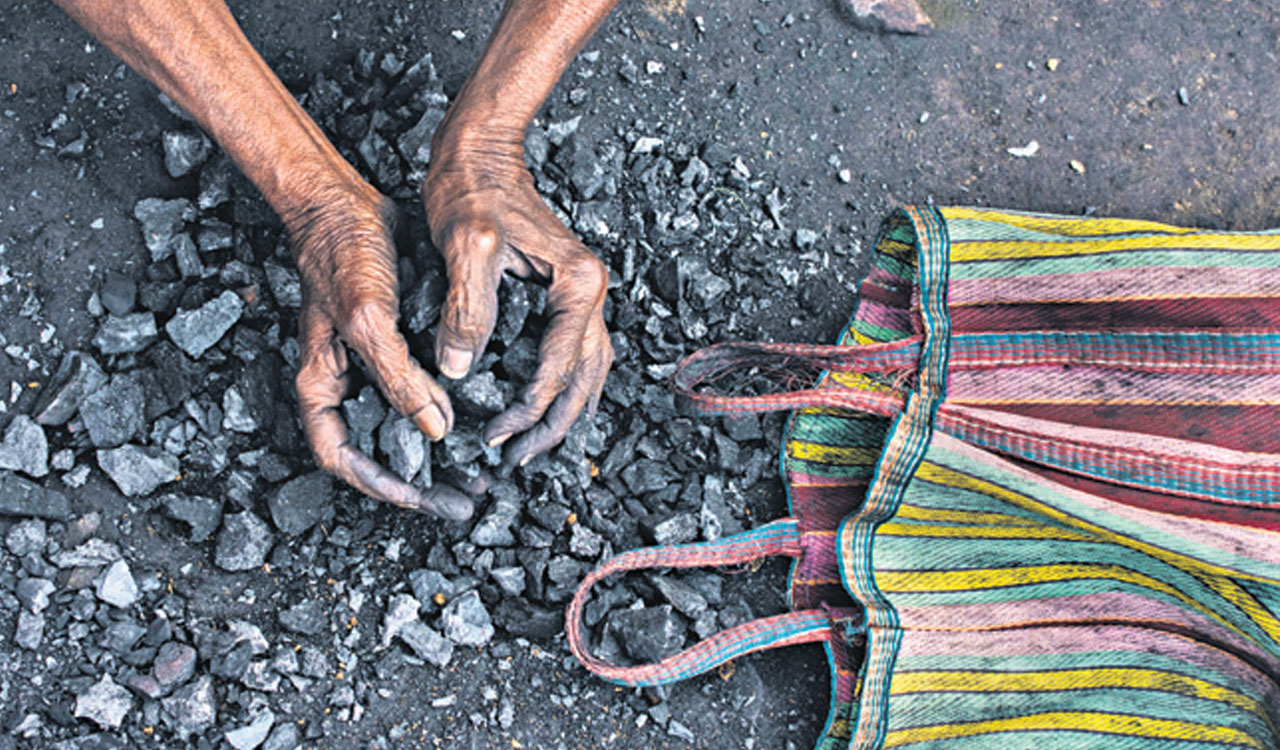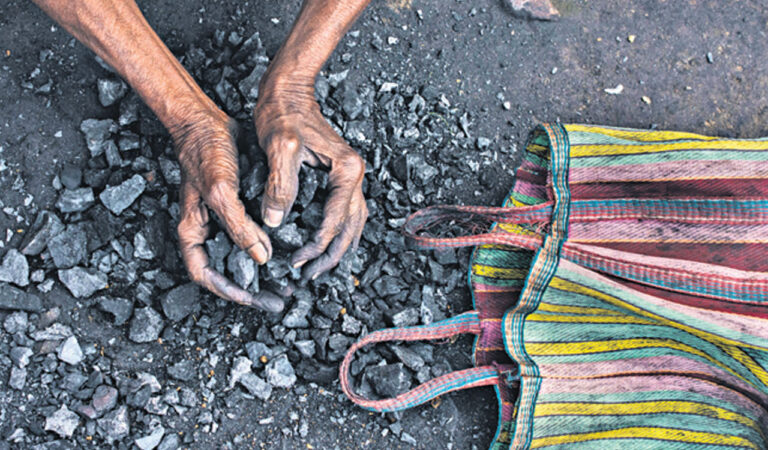Posted: Release Date – 12:40 AM, Sat – Nov 12 22

Countries can exit coal quickly, fairly and orderly, but they need a coordinated policy mix
John Wiseman
Coal-dependent countries around the world face two interconnected challenges: accelerating the phase-out of coal to prevent catastrophic global warming, while maintaining economic prosperity and political support.
As UN Secretary-General António Guterres recently said, keeping global warming close to 1.5 degrees requires stopping all new coal investment now, and by 2030, OECD economies and all other economies by 2040 Phase out coal.
The energy supply and economic impact of the war in Ukraine obviously makes these tasks even more difficult. But the war is also a powerful reminder of the enormous strategic and environmental risks posed by fossil fuel addiction.
Exiting coal will not necessarily end with an economic crisis or energy shortage. Not giving up coal will surely lead to climate catastrophe – and thus economic catastrophe. The researchers systematically reviewed the policies of countries along the transition from coal and provided guidance on which policies were effective.
Active, collaborative leadership
The government exits coal in a fast, fair and orderly manner, often with a proactive, collaborative and well-coordinated mix of supply and demand policies.
Key demand-side policy levers include carbon pricing mechanisms; reducing energy consumption and improving energy efficiency. And provide strong financing and infrastructure support for the rapid expansion of renewable energy.
Supply-side policies, such as expediting the closure of the coal industry by removing subsidies and through direct regulation, taxation and export licensing, are also critical. Regulatory action to overcome coal’s negative impacts on air quality, health and environmental outcomes often plays a key role. The same goes for mission-driven industrial policies that drive economic revival and job creation.
The EU remains very focused on phasing out coal by 2030. More than 80 billion euros ($92.9 billion) have been allocated to strengthen skills and jobs in coal-dependent regions. The funds will also help tap billions of dollars in private sector funding for clean energy infrastructure and technology.
German Chancellor Olaf Schultz recently proposed to bring forward Germany’s coal phase-out date to 2030. The German Coal Council, made up of government, business and union stakeholders, has suggested that 40 billion euros ($46.2 billion) are needed to support coal-dependent workers and communities.
Spain backed its ambitious coal phase-out and renewable energy targets with a “just transition” contract of more than 250 million euros ($289 million), covering early retirement, reemployment, environmental regeneration, and green industry investment and employment goals and strategies.
In Australia, the new Labour government is backing its upgraded greenhouse gas reduction targets through the National Energy Transition Partnership to coordinate and integrate national and state government energy transition investments.
Work Plan
The economic and job-creating potential of a well-managed transition from fossil fuels to renewables is now well-documented.
Renewable energy employment will increase to 12.7 million by 2022, adding more than 700,000 jobs. The International Energy Agency estimates that more than 30 million jobs could be created by 2030 in clean energy, efficiency and low-emission technologies.
Importantly, as ILO Director-General Guy Ryder said, “There is growing concern about the quality of work and working conditions in the renewable energy sector. The increase in the share of women in employment shows that dedicated policies and training can significantly improve Women’s participation in renewable energy careers and ultimately a just transition for all”.
In Germany, collaborative planning and long-term investment in infrastructure; education; environmental technology; culture and services have been an important basis for economic diversification and job creation in coal-dependent regions such as the Ruhr Valley.
In the United States, investment from President Biden’s Lower Inflation Act will create more than 550,000 new jobs in industries that produce renewable energy. In Australia, renewable energy think tank Beyond Zero Emissions demonstrated the potential of low-cost renewables to generate more than $300 billion in new export earnings and more than one million new jobs.
The challenge is to ensure that these national-level economic gains extend to coal-dependent regions where workers and communities are often left behind.
workers and communities
Broad public support for an alternative to coal depends largely on whether communities and workers believe that governments and businesses are truly committed to creating safe, high-quality jobs. The Paris Climate Agreement requires committed countries to consider “the need for a just transition of the workforce and the creation of decent and quality jobs in line with nationally defined development priorities”.
Sharon Burrow, General Secretary of the International Trade Union Confederation, reminds us that “a just transition will not happen on its own. Opportunity to create a more equal and resilient economy.”
Canada is stepping up its support for closing all coal-fired power stations by 2030 by working closely with coal-dependent communities, with a comprehensive package of investment, infrastructure, training and jobs.
A growing awareness of the inevitability of closing coal-fired power stations in Australia has strengthened support for coal-dependent communities, such as Latrobe Valley in Victoria and Gladstone in central Queensland, to take a more aggressive approach A proactive approach to creating new economic futures and opportunities.
Country and regional differences
A clear understanding of the different economic and social histories of coal-dependent countries and regions is needed to inform successful strategies to accelerate just and well-managed coal phase-out.
Countries that have led to the exodus of coal, such as the US, UK, Germany, Spain and Canada, often have access to relatively inexpensive alternatives. They are able to fund new energy infrastructure and support workers and communities in coal-dependent regions.
Coal-dependent countries such as China, India and Bangladesh also need to cope with rapidly growing energy demand. They face budget challenges in financing renewable energy and supporting regional communities. This is why advanced economies have a strong practical and ethical case to help finance a rapid and orderly transition in developing economies.
Coal exporters, including Australia, Colombia and Indonesia, also face serious challenges in creating alternative export revenue streams. And overcome the power of vested interests. However, these countries are increasingly aware of the potential of low-cost renewables to underpin new low-emission export industries such as green steel and green hydrogen.
make it happen
How can countries turn rhetoric of a just transition into reality while maintaining economic prosperity and political support? By providing the following:
• Strong, proactive and collaborative political leadership
• Respect coal community and worker participation
• Well-coordinated mix of demand-side and supply-side policies
• Transitional governance institutions for local participation and accountability
• Provide adequate funding for reemployment and retraining programs
• Economic revival and diversification policies based on regional strengths
• Mobilize investment on the scale needed to create high-quality jobs in a just and resilient zero-carbon economy

(The author is a professor and research fellow at the Melbourne Institute for Sustainable Society, University of Melbourne. 360info)
